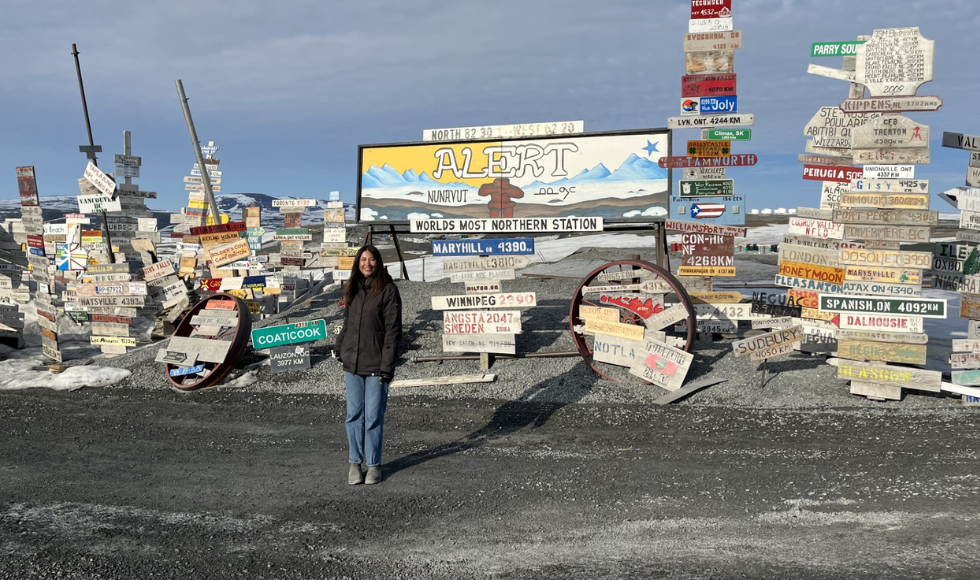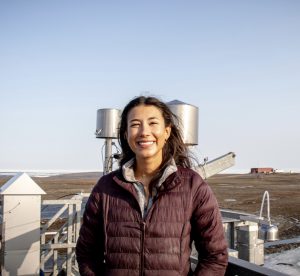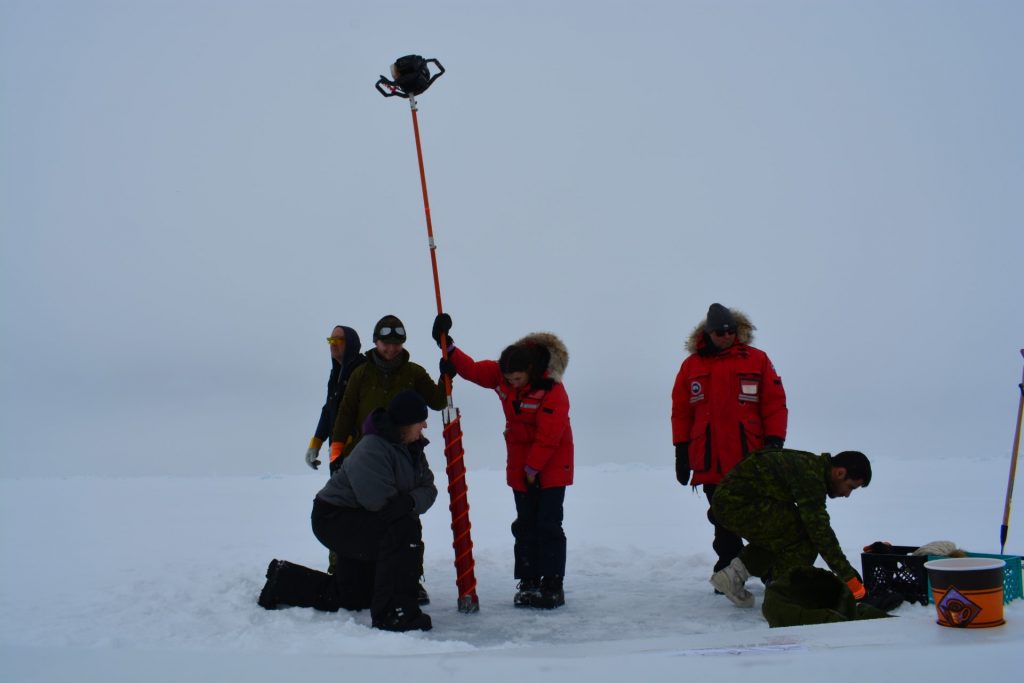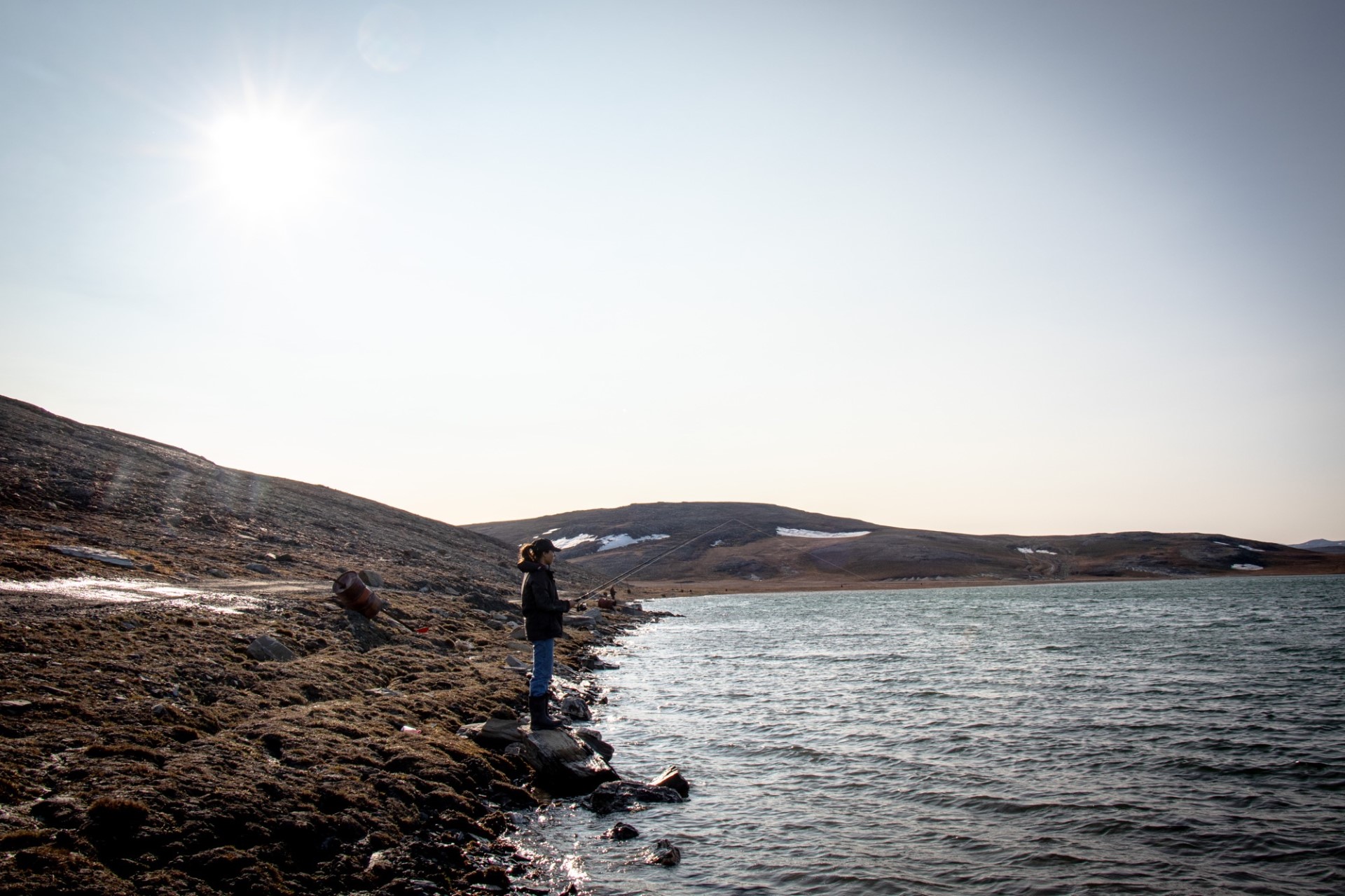Co-op takes student to the top of the world

Fourth-year Earth, Environment & Society student Erika Bullen during a co-op placement in Alert, Nunavut.
Erika Bullen took remote work to the extreme with her Environment and Climate Change Canada co-op.
Bullen spent four months working as one of “The Frozen Chosen” at the top of the world in the Dr. Neil Trivett Global Atmosphere Watch Observatory.
The observatory is located in Alert, Nunavut on the tip of Ellesmere Island. Alert is the northernmost continuously inhabited settlement in the world. It’s home to a rotating crew of military personnel, scientists and civilians. There are no permanent residents and tourists aren’t allowed.
Alert is just over 800 kilometres south of the North Pole and 4,405 kilometres north of McMaster. Iqaluit, population 9,475, is the nearest Canadian town. It’s more than 2,000 kilometres away.
For five months of the year, Alert is in total darkness. The sun never sets for another five months. There’s snow on the ground for 10 months of the year, with an average temperature of 3.4 degrees Celsius in July.
But there was nowhere else Bullen, a fourth-year Earth, Environment & Society student, wanted to be.

“It was a once-in-a-lifetime opportunity. It was a chance to do work that had global reach,” she says. “Being part of an international network of atmospheric watch labs felt really significant. And I was in such an incredible part of the world that very few people ever get to experience.”
Bullen split her week between the observatory and a Canadian Forces station, doing a mix of administrative and lab work.
The observatory is five kilometres south of the station and surrounded by tundra.
“I had a million dollar view from the lab,” says Bullen. “During the summer, the tundra was blanketed in gorgeous flowers, purple saxifrage, Arctic poppies and willow. It’s not just snow and ice year-round.”
Bullen says her co-op exceeded all expectations.

“I learned so much about atmospheric monitoring and gained skills that I’ll carry with me into my career.”
Along with making lifelong friends, Bullen says she picked up a ton of new hobbies.
“Being the only people around for thousands of kilometres can get boring so there are many clubs and activities on station to keep everyone busy. I joined the running club, picked up woodworking, became a member of the knitting and crochet club, participated in countless athletic challenges and did a ton of karaoke.”
Gangsta’s Paradise, Save a Horse and Super Bass were Bullen’s go-to songs. “The best – or worst depending on who you ask – was Christmas in July when we had Christmas karaoke going until 3 a.m.”
Off-station activities included digging for quartz crystals, polar bear spotting, exploring the natural ice caves that form in the spring and summer and going for brisk and bracing swims in the Lincoln Sea.
And then there was looking after Sushi, Magic Mike and Brutus – three jumbo-sized goldfish who’ve been at the station for more than a decade.

Isolation can take its toll. “There are so many little luxuries that you take for granted that you don’t realize you have until they’re gone. I never thought I would miss grocery shopping and Starbucks so much.”
Bullen’s four-month co-op in Alert has her ready for whatever winter has in store for Hamilton.
“Getting off the plane back home to 25-degree weather was a big shock,” says Bullen “I don’t think I’ve ever felt so warm. But I’m definitely prepared for an Ontario winter.”
Bullen is currently on her third co-op, working as a Tides and Water Levels Assistant with Fisheries and Oceans Canada. She’s among the 266 undergraduate students in the Faculty of Science who are completing paid co-op work terms in 2023.
Would Bullen go back to Alert?
“I would for a short stint in the spring, summer or fall but I don’t think I could survive the winter. Frigid temperatures, 24-hour darkness and little to no outside activities isn’t really my style. We had strong winds during the summer that would shake the buildings so I can’t imagine how bad it gets in the winter. Kudos to everyone who goes up there during the winter. They’re the real Frozen Chosen.”


